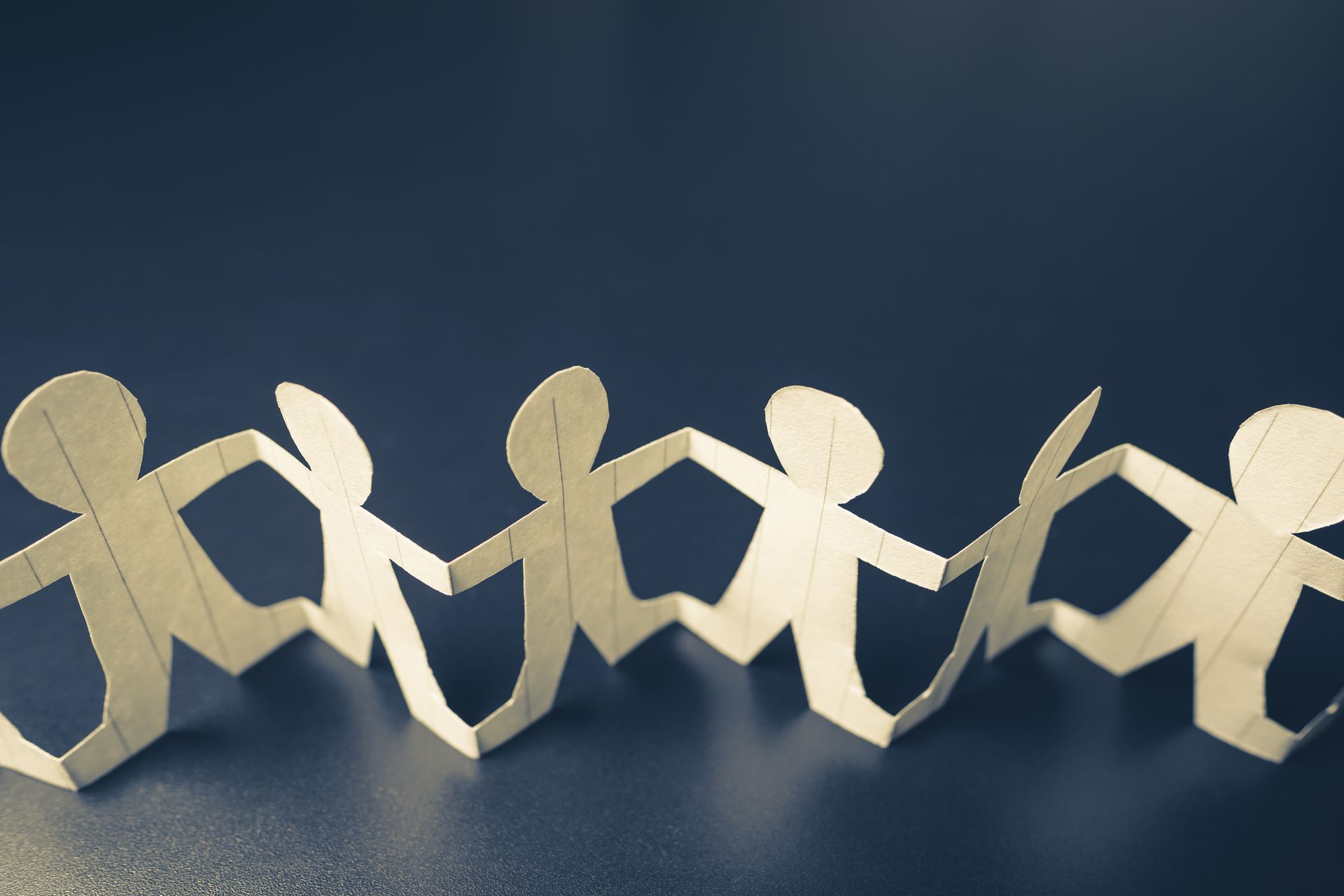Empowering Women and Girls and Addressing One of the Most Pressing Global Challenges
Without the balanced socio-economic empowerment of women and girls, building a healthier, more sustainable, and more equitable future is an impossibility. On the occasion of Earth Day 2022, Shannon P Marquez, PhD, MEng, Dean of Global Engagement at Columbia University; Faculty, Columbia Climate School and Mailman School of Public Health, encourages us all to choose a regenerative future through empowering women and girls and addressing one of the most pressing global challenges in our lifetime—universal access to water and sanitation.Annually on April 22nd, we celebrate Earth Day and reaffirm its mission of environmental stewardship, calling on the world to make transformative change to protect our planet and all people; an act that is inherently dependent upon gender equality. Without the balanced socio- economic empowerment of women and girls, building a healthier, more sustainable, and more equitable future is an impossibility. Accordingly, on the occasion of Earth Day 2022, which this year has a theme Invest in Our Planet, I encourage us all to reflect on this moment to act boldly to choose a prosperous, equitable and sustainable future through empowering women and girls and addressing one of the most pressing global challenges in our lifetime—universal access to water and sanitation. Our commitment to this bold endeavor—to invest in our planet through the lens of gender equality and social inclusion and the sustainable provision of water, sanitation, and hygiene (WASH) for all—has to extend far beyond raising awareness and knowledge of issues of global concern. It has to further environmental stewardship.
Annually on April 22nd, we celebrate Earth Day and reaffirm its mission of environmental stewardship, calling on the world to make transformative change to protect our planet and all people; an act that is inherently dependent upon gender equality. Without the balanced socio- economic empowerment of women and girls, building a healthier, more sustainable, and more equitable future is an impossibility. Accordingly, on the occasion of Earth Day 2022, which this year has a theme Invest in Our Planet, I encourage us all to reflect on this moment to act boldly to choose a prosperous, equitable and sustainable future through empowering women and girls and addressing one of the most pressing global challenges in our lifetime—universal access to water and sanitation. Our commitment to this bold endeavor—to invest in our planet through the lens of gender equality and social inclusion and the sustainable provision of water, sanitation, and hygiene (WASH) for all—has to extend far beyond raising awareness and knowledge of issues of global concern. It has to further environmental stewardship.
Achieving SDG 6 and the Targets Enabled by WASH
We need to empower leaders to understand how the global water crisis impacts their own lives and what can be done to “leave no one behind” and promote transformational change at the individual, household, institutional (e.g. schools and health facilities), community, and societal levels. The numbers speak for themselves: 785 million people still lack access to basic water services, more than 2 billion people worldwide do not have access to basic sanitation (over 25% of the global population), and 3 billion people worldwide lack adequate facilities to safely wash their hands at home. Addressing the global water crisis incorporates gender equality and social inclusion principles and approaches, such as achieving Sustainable Development Goal (SDG) 6 “ensure availability and sustainable management of water and sanitation for all” by 2030, as well as the SDGs and targets enabled by WASH, including: reducing poverty and achieving universal access to basic services (1.1 and 1.2); ending all forms of malnutrition (2.2); ending preventable child deaths, combating neglected tropical diseases and waterborne diseases, and achieving universal health coverage (3.2, 3.3, 3.8 and 3.9); providing safe and inclusive learning environments (4a); ending violence against women and girls and reducing gender inequality (5.2 and 5.4); ensuring adequate, safe and affordable housing for all (11.1) and reducing deaths caused by disasters (11.5), all of which are supposed to be universally relevant and applicable in all countries.
Leaving No One Behind Means Addressing Gender Inequalities
I believe that water, sanitation, and hygiene (WASH) are fundamental for human well-being and universal access must be ensured to achieve positive outcomes to health, education, livelihood, dignity, safety, and gender equality. Among the millions of people who lack a basic drinking- water service, and billions who lack access to basic sanitation services, a large proportion are poor and living in low-income rural communities. Moreover, the lack of access to WASH affects women and girls disproportionately. This negatively impacts the education of girls, possibilities for improved public health, and the reduction of health disparities—all essential for socio- economic development.
I have seen first-hand that in many low-income countries, women and girls are negatively impacted by a lack of private and safe sanitation facilities, particularly for menstrual hygiene; in addition, maternal and child health are also seriously affected by inadequate WASH—for example sepsis is considered one of the biggest causes of neonatal mortality, largely due to unhygienic practices during childbirth. In this regard, menstrual health and hygiene (MHH)— which is at the nexus of WASH—is vital to the empowerment and well-being of women and girls worldwide. This requires more than just access to sanitary pads and appropriate toilets, but also includes ensuring women and girls live in an environment that values and supports their ability to manage their menstruation with dignity. Further, household sanitation facilities or water on premises are thought to decrease risks of violence associated with open defecation or water collection. Accordingly, there is consensus that gender inequalities related to WASH are particularly large, as women and girls experience strong gendered norms surrounding water and sanitation, such as expectations of fetching water, caregiving, and hygiene roles within the household and community. And some anecdotal evidence demonstrates that “gender and power relations within WASH interventions has also been shown to improve women’s self- confidence in intra-household relations, participation in society, and community-level decision making.” Easily accessible WASH is thought to increase women’s economic opportunities and economic empowerment as there is less time and energy spent on unpaid work and women have more time for productive or leisure activities. Inadequate water supply results in substantial opportunity costs for women, including time available for child-care, food preparation, household hygiene, and income generation.
Empowering Women and Girls Through Transformative WASH
Finally, the empowerment of women and girls through transformative WASH can also promote economic empowerment and ensure women and girls the opportunity to make choices and actionable decisions for themselves, their households, and communities, including:
- the safe management and access to WASH infrastructure and services that reflect the needs of women and girls, including MHH;
- shifts in attitudes regarding harmful gender norms and roles within the household, which has the potential to also reduce gender-based violence;
- decreasing the health burden related to gender and social inequality, including decreasing rates of diarrhea and other infectious diseases at the individual and household level;
- girls attending, actively participating in, and succeeding in school as well as more time for women and girls to pursue economic endeavors since there is less time required to haul water;
- economic empowerment through WASH entrepreneurship and productive water uses;
- balanced participation in WASH decision-making at the household and community level; and
- women voicing their expectations and influence in decision-making within the WASH sector.
Above all, investing in our planet by advancing the empowerment of women and girls through transformative WASH can create a dignified, enabling environment where equitable policies and systems can allow women and girls to reach their full potential.
PHOTO: Shannon P Marquez | India
About the Author:
Shannon P Marquez, PhD, MEng
Dean of Global Engagement, Columbia University
Faculty, Water Center-Columbia Climate School, Environmental Health Sciences-Mailman School of Public Health
Read perspectives from the ISSP blog



